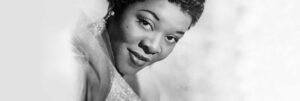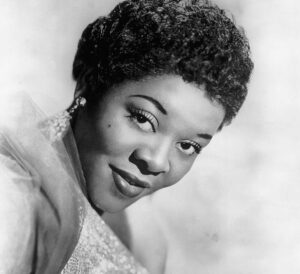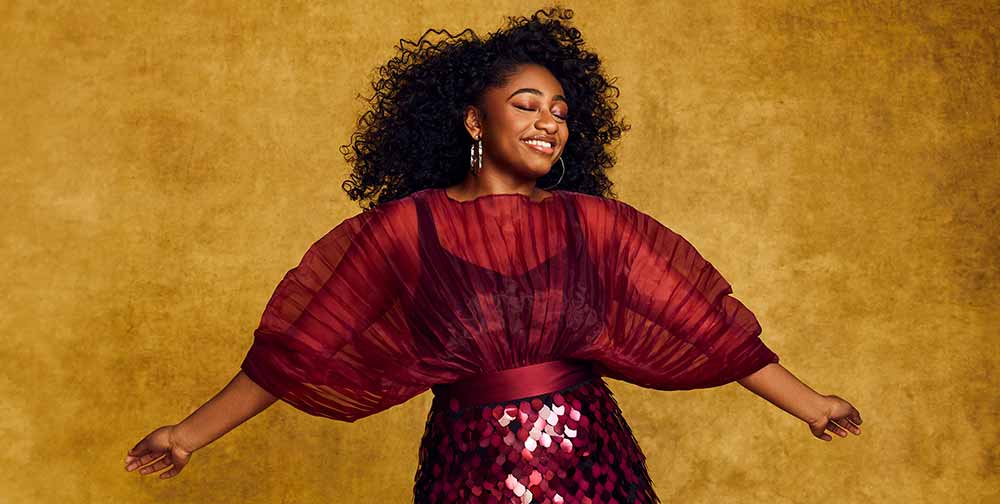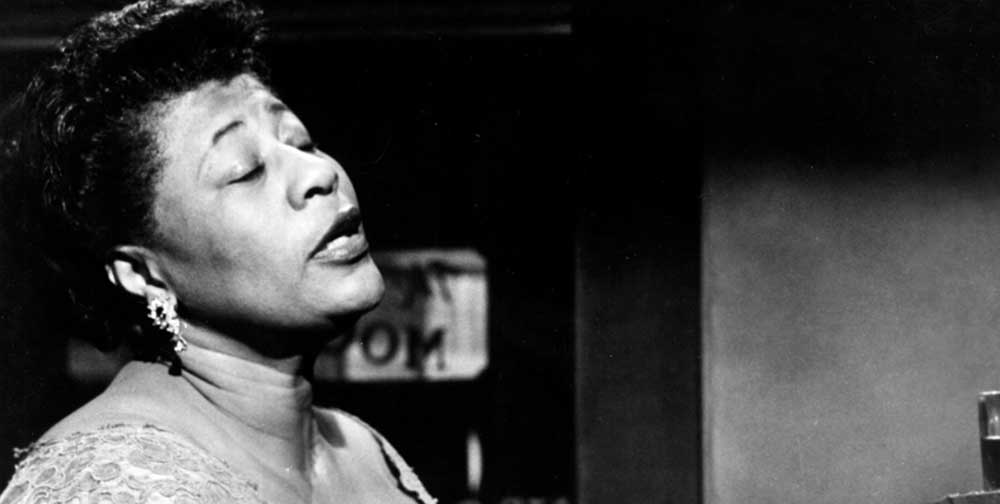If you’ve ever longed for a vocal muse to take you through the ups and downs of a passionate love affair, Dinah Washington would be my recommendation.
The award-winning singer born Ruth Lee Jones on 29th August 1924 in Alabama began her career singing and playing piano in the church where her mother was a music teacher.
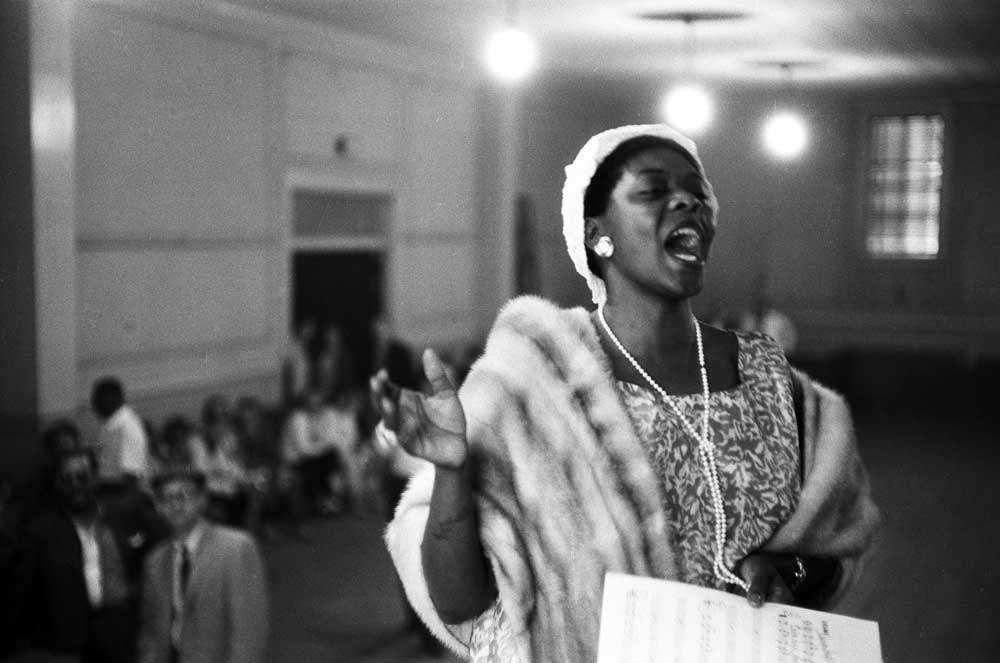
A gifted voice with perfect pitch and a unique timbre, she first got her big break with the Lionel Hampton Band. She could sing anything from gospel to jazz, pop, blues, and soul. Confident in her own abilities, she decided on her own moniker as the ‘Queen of the Blues’. Her flexibility as a vocalist meant she was equally at home in front of blowsy orchestras as much as she was doing gigs in intimate, smoky jazz clubs.
Between 1955 and 1961, she recorded with various orchestras conducted by the legendary Quincy Jones, featuring his rich orchestrations. He said, “Dinah had a voice that was like the pipes of life. She could take any melody in her hand and hold it like an egg, crack it open, fry it, let it sizzle, reconstruct it, put the egg back in the box and back in the refrigerator, and you would’ve still understood every single syllable of every single word of everything she sang. Every single melody she sang, she made hers. Once she put her soulful trademark on a song, she owned it, and it was never the same.“
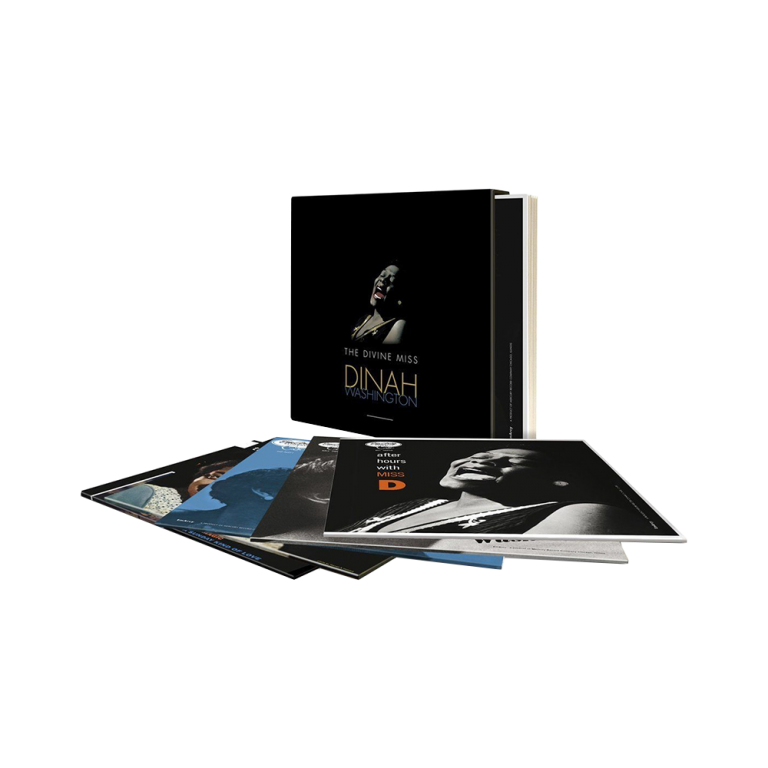
Dinah Washington The Divine Miss Dinah Washington
Available to purchase from our US store.One of their collaborations was on her tenth studio album, “What a Difference A Day Makes.” The title track provides real insight into her skills as a vocalist. Listen to her slight pause at the beginning, just after the strings play the introduction, creating a sense of anticipation as she leans into the word ‘What…’. Or the emphasis on the lyric “Lord, what a difference…” at the start of the second verse. It’s a laid-back, languid interpretation with bite; one that many vocalists try to mimic but fail to achieve the same impact. And therein lies a conundrum; there’s always a danger when a song like “What a Difference a Day Makes” becomes so ubiquitous that we cease to hear the original brilliance of Dinah’s interpretation.
Before he founded Weather Report, Joe Zawinul was one of her early accompanists. He also played on the first recording of that song, which won her a Grammy in 1959 for Best Rhythm & Blues Performance. He recalled, “She was able to get inside any song. She cried almost every night when she was singing… and she had the audience crying with her.”
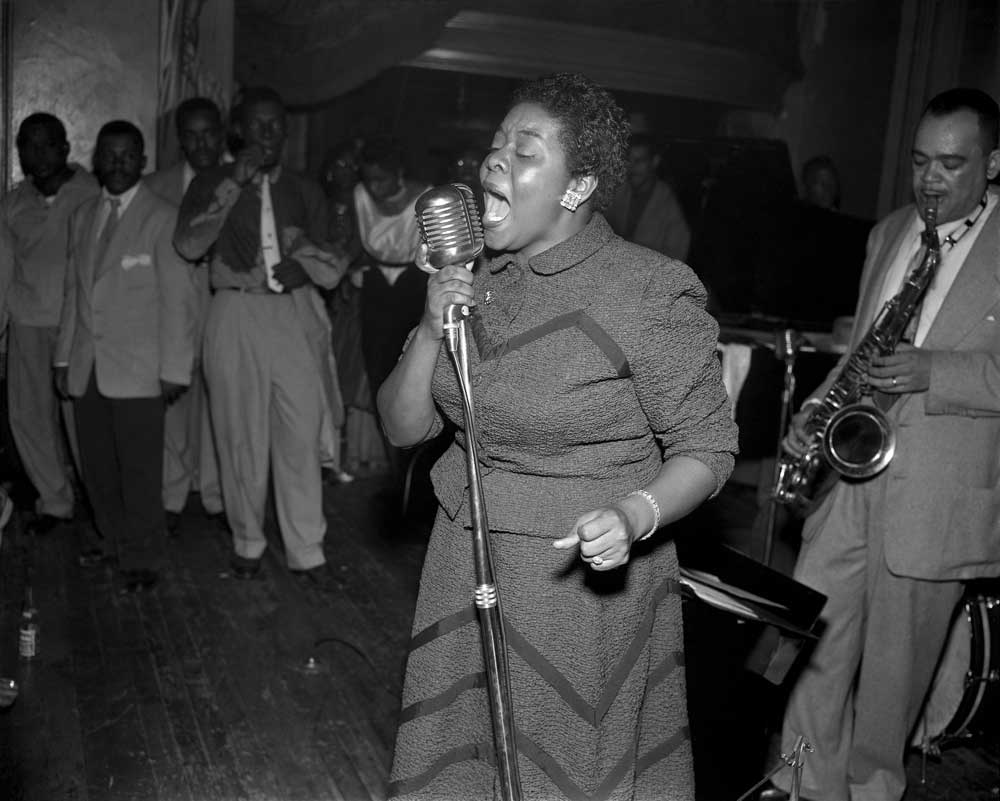
Legend has it that Washington was as fierce and assertive in her own life as she was in the studio. His goddaughter Patti Austin recalled, “She might have thrown instruments at musicians, but she could easily shower them with presents.” She wouldn’t put up with mistakes, expecting the same high standard from them as she had for herself. She was also totally loyal to them.
And she wasn’t shy about expressing her ire even whilst in the middle of a recording. Listen to the bouncy “Baby. You’ve Got What It Takes”, a duet with Brook Benton, who she apparently didn’t like. Just after the second chorus, she vocally puts Brook in his place when he comes in on her line. It’s a charming but lethal moment when she asserts that he’s in “her spot again”. I am so glad they kept that moment in the recording. It makes you feel like you are in the vocal booth with them, although I’m not sure I’d want to be told off while recording!
Washington was incredibly prolific, and the level of her output was astonishing. And it’s a body of work that can take you through the anatomy of a love affair. Are you feeling giddy about finding the one? Listen to “There Is No Greater Love.” Learning about what your lover needs? “Teach Me Tonight.” Unsure of your lover? “Is You Is Or Is You Ain’t my Baby?” Having a long-distance love affair? “Every Time We Say Goodbye.” Are you doubting the sincerity of your lover? “That’s All There Is To That.”
Living with unrequited love? Listen to her sing the Noel Coward classic “Mad About The Boy.” Her sung/speech approach to the song makes it so powerful. It’s like she’s giving a PowerPoint lecture but can’t help herself from spilling into emotion. Her tense-filled Inflections marry an Eartha Kitt-esque tone and capture that crazy intense feeling one gets when experiencing unrequited love as the string accompaniment illuminates film noir anguish as she sings, “I’m feeling quite insane…”
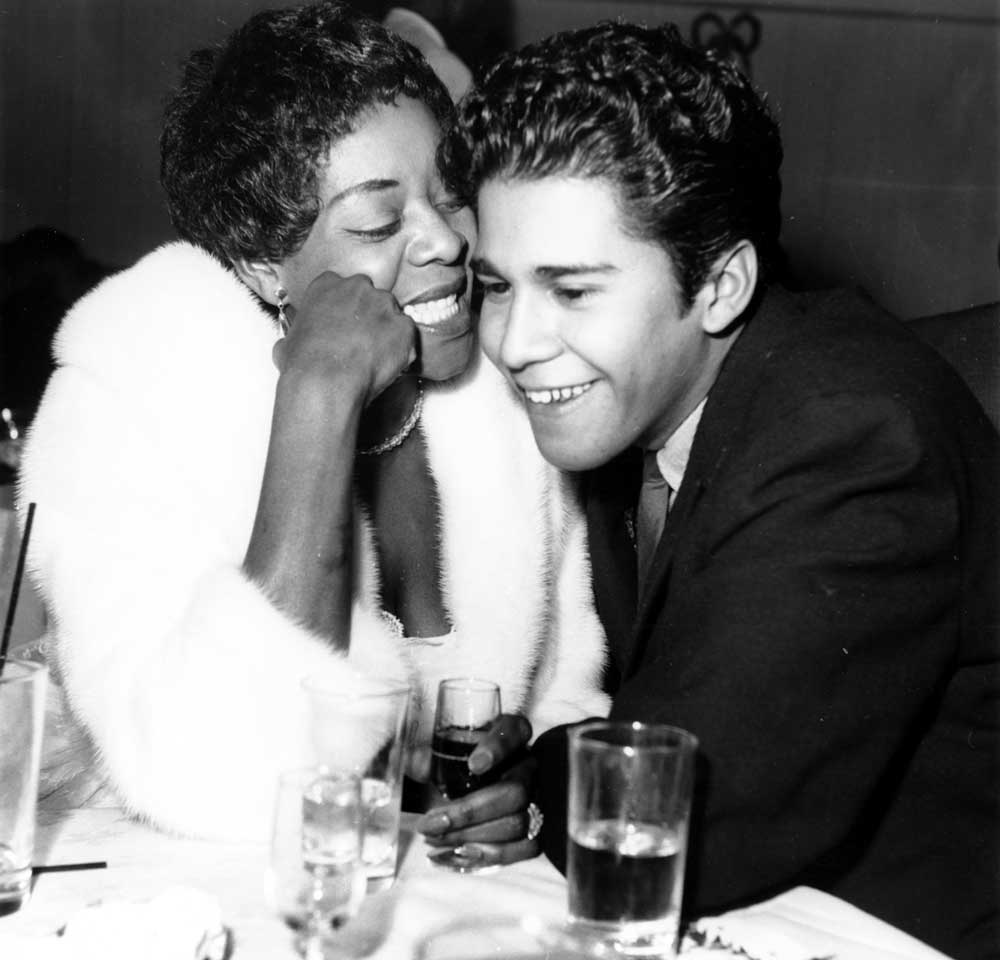
And she really knew about the travails of love. Nobody actually knows how many husbands Dinah Washington married. The official tally is seven, but Harry Belafonte, in his book “My Story”, mentioned that she may have had nine. She also apparently had an affair with the debonair jazz singer Billy Eckstine. This personal feat is even more impressive given the fact that she passed away at the very tender age of 39.
Sadly, she left us way too soon, but as we mark the centenary of her birth, we celebrate the legacy she has left behind of incredible music, a unique individual style of singing and a voice that will haunt the ages.
All the above mentioned recordings can be found on the newly released 5LP box set “The Divine Miss Dinah Washington”.

Dinah Washington The Divine Miss Dinah Washington
Available to purchase from our US store.Jumoké Fashola is a journalist, broadcaster, and vocalist who currently presents a range of arts and culture programmes on BBC Radio 3, BBC Radio 4, and BBC London.
Header image: Dinah Washington. Photo: James J Kriegsmann / Bettmann via Getty.

